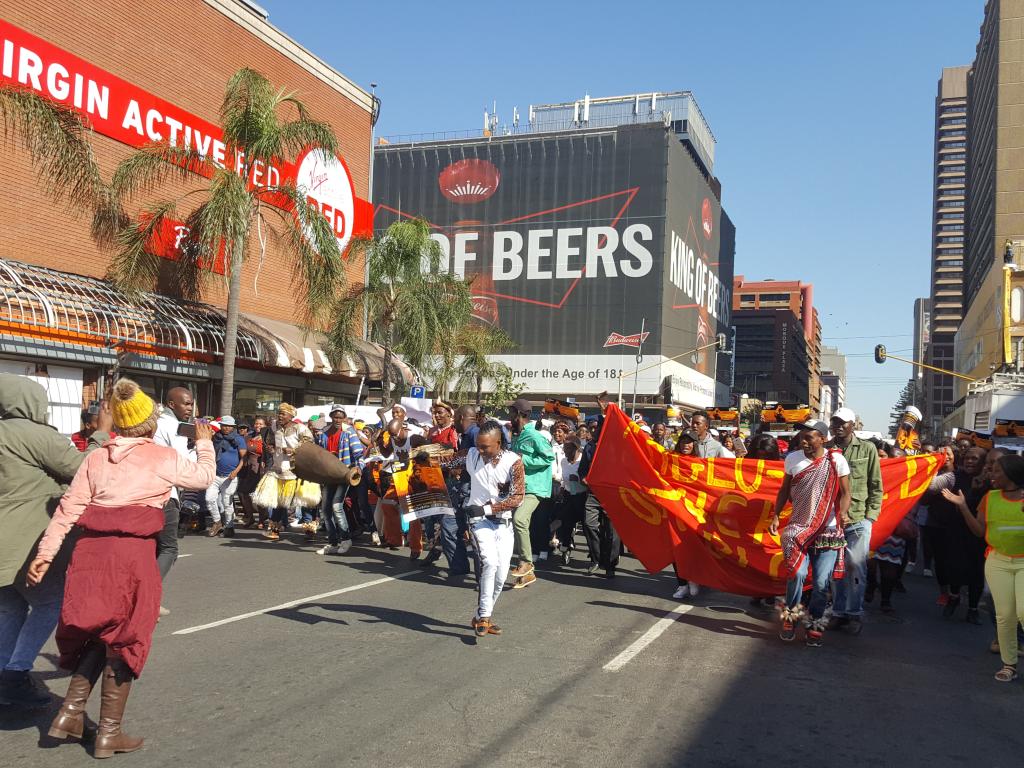After the march: Stop the Bantustan Bills Campaign

On the 5th of June young and old rural community members from Limpopo, Mpumalanga, North West, Free State, Eastern Cape and KwaZulu- Natal united under the banner of the Stop the Bantustan Bills campaign and marched to the Union Buildings. They handed over a memorandum to the Office of President Ramaphosa demanding that he refuse to sign the Traditional and Khoi-San Leadership Bill (TKLB) into law and that the Traditional Courts Bill (TCB), which is currently before the National Council of Provinces, be scrapped in its current form.
The two Bills have been rejected by those participating in the march, who argue that it is unconstitutional, undemocratic and violates the true nature of customary law. The TKLB in particular poses a threat to the land rights of these communities as it provides for traditional councils to enter into partnerships and agreements with anyone, including corporate entities such as mining companies, without the consent of the directly affected people.
The TCB in effect forces people into the courts of traditional leaders without any choice about whether to opt in or out of the traditional court and instead take their matters to the Magistrate’s court. Furthermore this Bill does not provide clear mechanisms to ensure the participation of women in traditional courts as members and parties. Currently in many rural areas women are not allowed to represent themselves in traditional courts.
Rural communities took to the streets to defend their property and citizenship rights. The two Bills will effectively create two legal systems, making the 18 million South Africans in the former Bantustans subjects of traditional leaders, while people in urban areas are treated more like citizens. This is the main reason these Bills are referred to as the “Bantustan Bills”. They bring back the Bantustans by giving traditional leaders authority over the land and anyone who lives within the boundaries that were created for tribal authorities by the apartheid government in terms of the Bantu Authorities Act of 1951.
Those marching waited several hours outside the gates of the Union Buildings with the Presidency not emerging to receive their memorandum. Eventually Chief Director of Corporate Services in the Presidency, MJ Feni came out to receive and sign the memorandum. The President has been given seven days to respond.
To view/download LARC’s letter to the President, please click here.
To view/download the Alliance for Rural Democracy’s memorandum, please click here.
